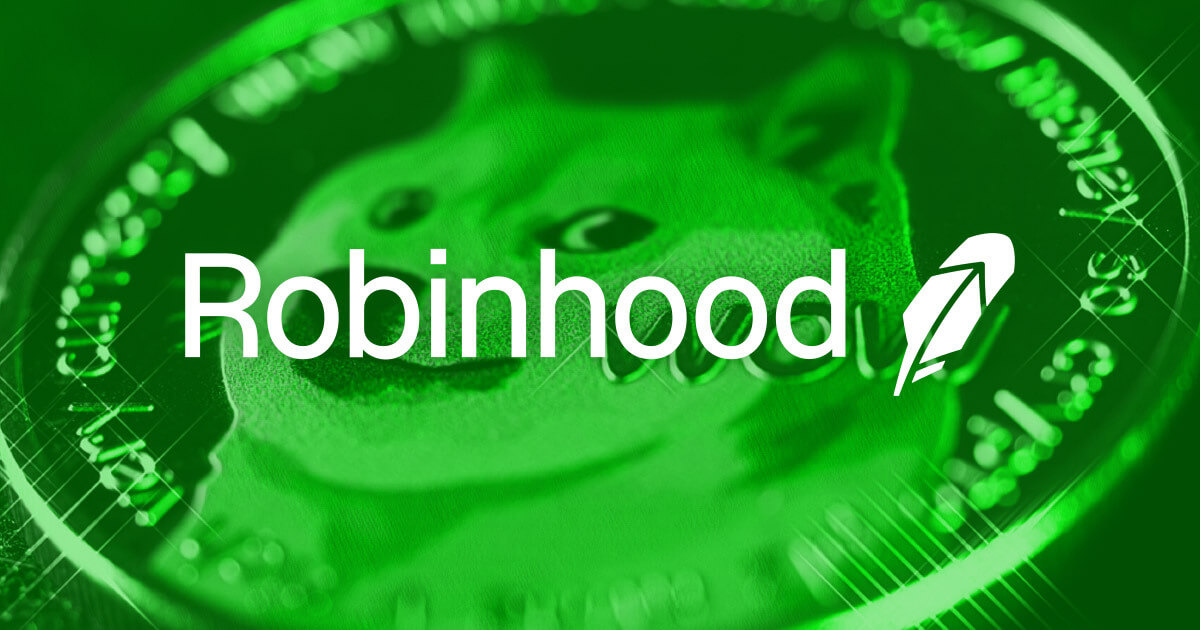
Commission-free trading platform Robinhood reveals it relies heavily on Dogecoin. The firm admits lessening demand for the controversial meme token could negatively impact its operations.
With a YTD peak of almost +15,000%, the performance of DOGE has shocked many analysts. However, considering that this seems mainly driven by sentiment rather than fundamentals, some believe it’s only downhill for Dogecoin from here.
In Q1, 34% of Robinhood’s crypto revenue came from Dogecoin.
That was before it really popped off.
Such wow. https://t.co/L7Gnnx4eYM pic.twitter.com/fLZVFuBZy8
— Alex Wice (@AWice) July 1, 2021
If so, this could spell trouble for Robinhood as it attempts to go public.
Dogecoin makes up a significant part of Robinhood’s revenue
Robinhood Markets, Inc. has filed its Form S1 Registration Statement with the Securities and Exchange Commission (SEC) in connection with going public.
In doing so, the firm revealed its financials for the first time. For the year to December 2020, total revenue was $959 million; this is up 245% from the previous year, at $278 million. At the same time, net income came in at $7 million, versus a loss of $107 million for the year to December 2019.
Figures for Q1 2021 show a massive surge in revenue, coming in at $522 million versus $128 million for the same period in the prior year.
Under risks, the form identified a significant proportion of its revenue comes from Dogecoin trading. The statement says that its operations could be “adversely affected” if demand for Dogecoin transactions declines.
“A substantial portion of the recent growth in our net revenues earned from cryptocurrency transactions is attributable to transactions in Dogecoin. If demand for transactions in Dogecoin declines and is not replaced by new demand for other cryptocurrencies available for trading on our platform, our business, financial condition and results of operations could be adversely affected.”
Robinhood said Dogecoin trading accounts for 34% of its cryptocurrency trading revenue in Q1 2021. Whereas it only accounted for 4% in Q4 2020.
everything is so dumb pic.twitter.com/WcZkk1C5Xj
— Matt Levine (@matt_levine) July 1, 2021
SEC has concerns with gamification
Robinhood caught on during the start of lockdown when younger, arguably less experienced, people turned to trade.
Its monthly active users have more than doubled since the last year, with 17.7 million as of Q1 2021, up from 8.6 million in the same period last year.
The rising popularity of Robinhood was noted by authorities who took exception to the platform’s “gamification” of trading.
SEC Chair Gary Gensler spoke about these concerns during a recent House Financial Services Committee. He identified game-like features such as points, rewards, leaderboards, bonuses, and competitions designed to increase engagement.
“Many of these features encourage investors to trade more,” Gensler added, “Some academic studies suggest more active trading or even day trading results in lower returns for the average trader.”
In relation to this, Robinhood commented that it intends to make “significant changes to our business model.”
Get an edge on the cryptoasset market
Access more crypto insights and context in every article as a paid member of CryptoSlate Edge.
On-chain analysis
Price snapshots
More context



